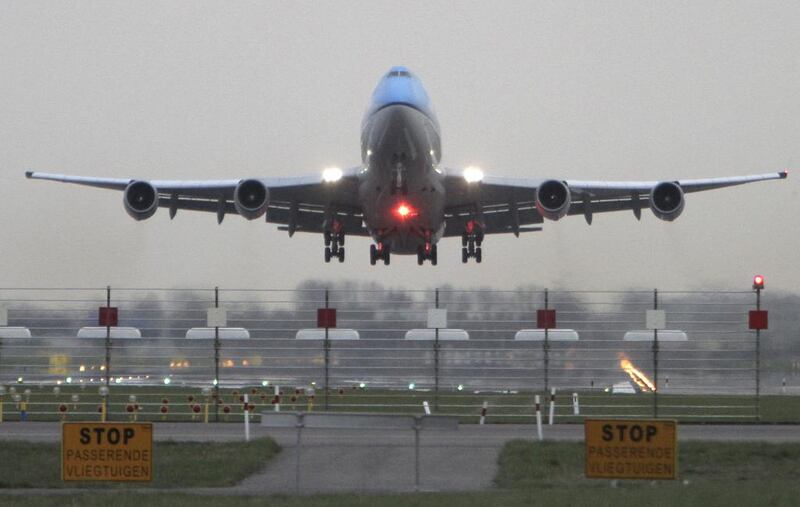The Dutch airline KLM said it will use face-scanning technology at Amsterdam’s Schiphol Airport in a test of ways to speed up the boarding process and improve security.
The three-month trial requires passengers to register in advance and then scan boarding passes, passports and faces at a special kiosk, the airport said. The test will take place at a selected gate at the flag carrier KLM’s hub.
Dubai International Airport was the first in the region to implement the e-Gate system and the third airport in the world to do so. The General Directorate of Residency and Foreigners Affairs announced in July that it had completed the activation of its upgraded e-Gate service through the use of the Emirates ID card, a service which requires no prior registration.
The e-Gate system reads passport information and captures biometric data, including facial recognition, in 12 to 14 seconds.
Airports and airlines worldwide are exploring the use of new technologies to speed passengers through terminals more quickly and deal with the risks associated with international travel. In Japan, the government early last year invested to install facial recognition systems at airports nationwide to boost security.
Other innovations are being introduced at airports to boost security and improve passenger experience. Robots are joining the fight against crime by helping catch suspects in airports using cutting edge facial recognition software. Customs personnel input information about wanted criminals into the Chinese made Qihan-Sanbot, so if an offender passes through the airport they can be tracked.
Qihan’s Sanbot is already in use in Chinese airports including Shenzhen International, and hospitals under a robots-as-a-service, or RaaS, model.
The Sanbots are humanoid robots that also offer customer service, chatting to people who need help in terminals. They are equipped to translate 28 languages and answer passengers’ questions. The company is planning to launch Sanbots in the United States this year.
In the United States, the biometric screening firm Clear is expanding to 22 major US airports with lanes that use fingerprints or iris scans to check members’ identities. The service eliminates the need for boarding passes at the security checkpoints and identity checks and lets members head straight to transportation security administration screening. New York-based Clear charges US$179 a year, with new enrollees receiving a one-month trial for free.
The company opened lanes last month at New York’s John F Kennedy International Airport and is adding New York’s LaGuardia, Atlanta’s Hartsfield-Jackson and Los Angeles International, among others. Delta Air Lines owns a 5 per cent stake in Clear.
business@thenational.ae
Follow The National's Business section on Twitter





